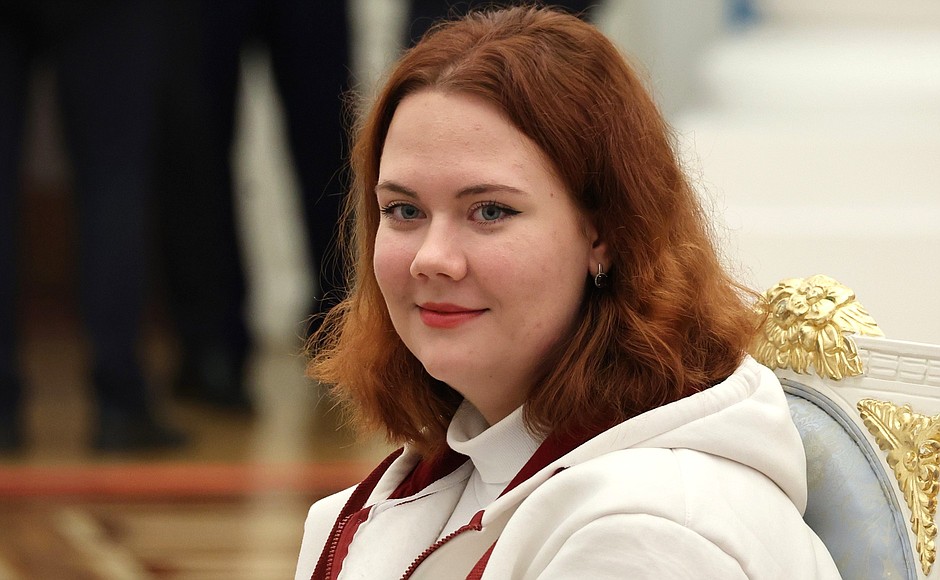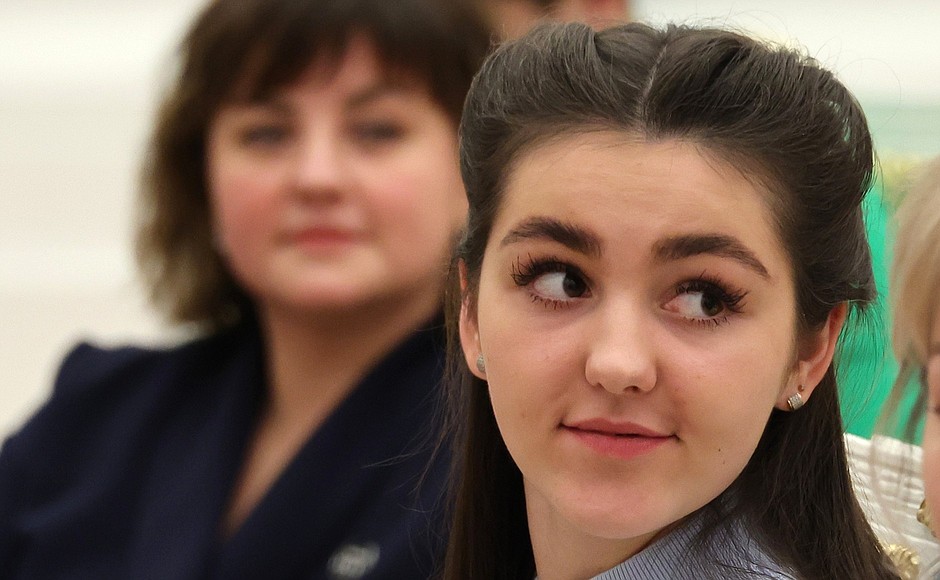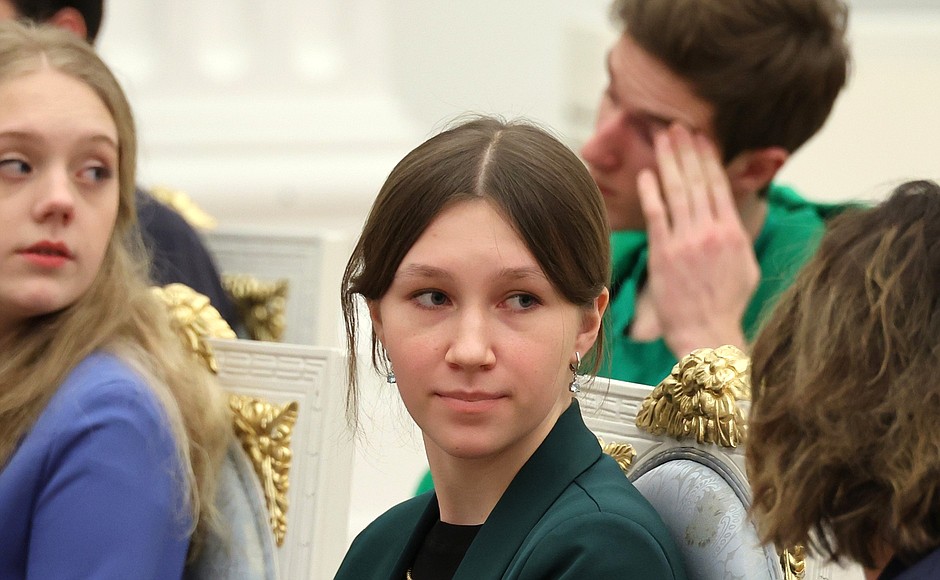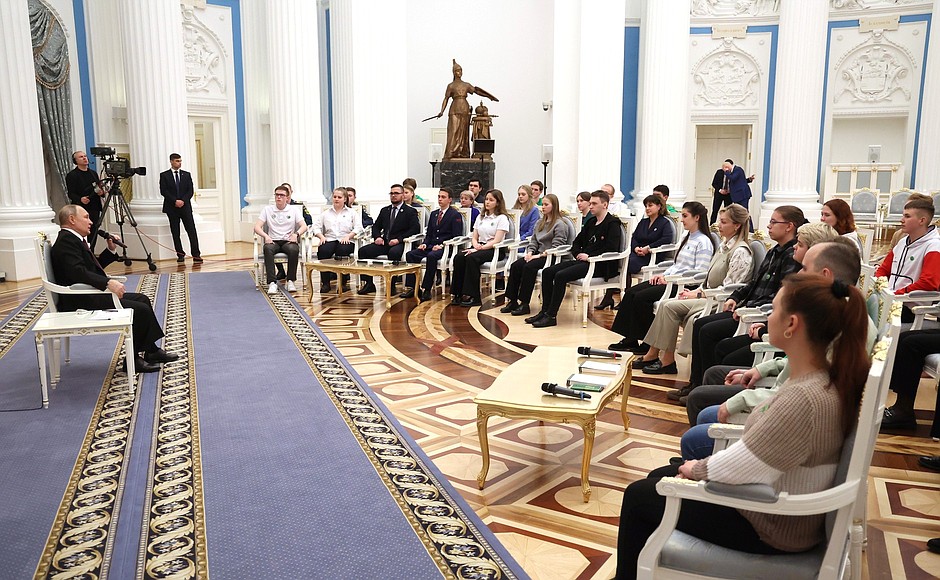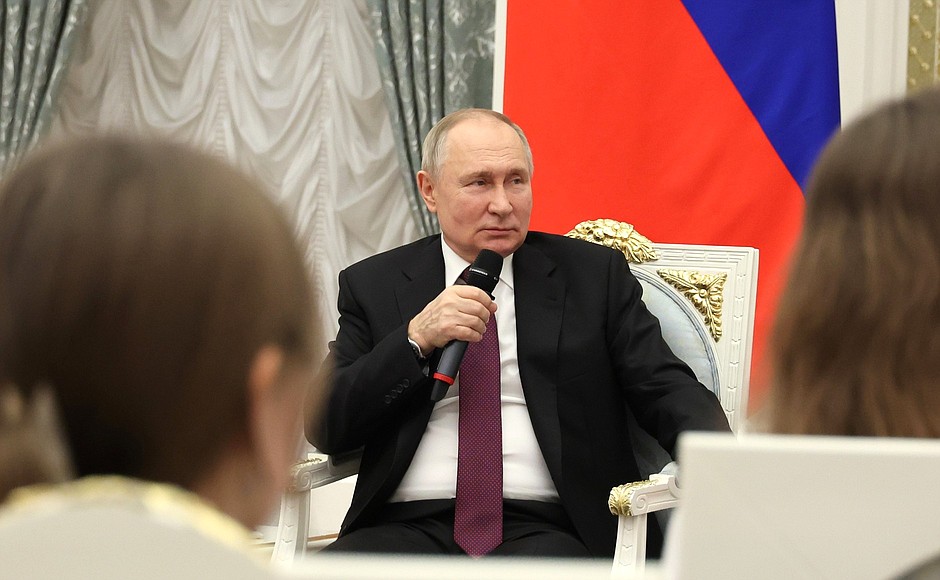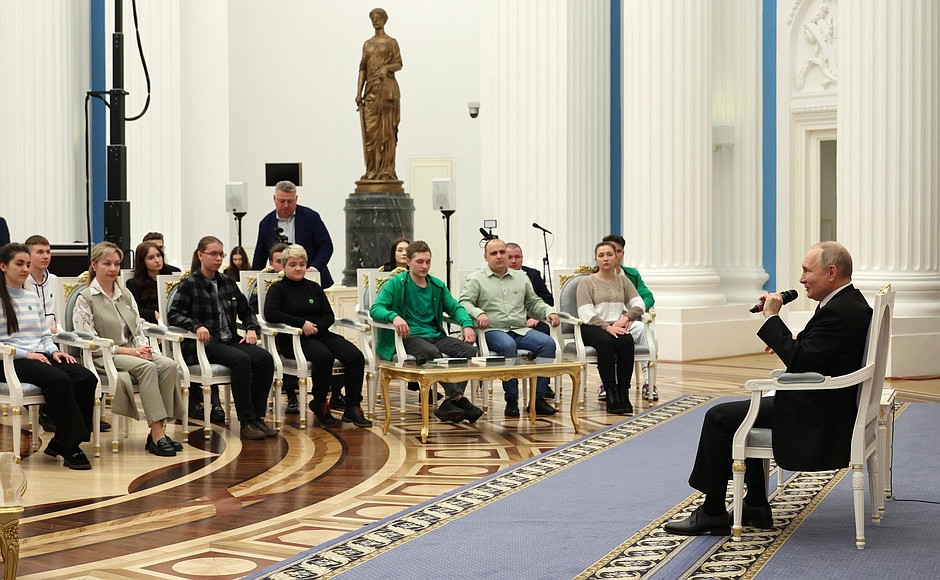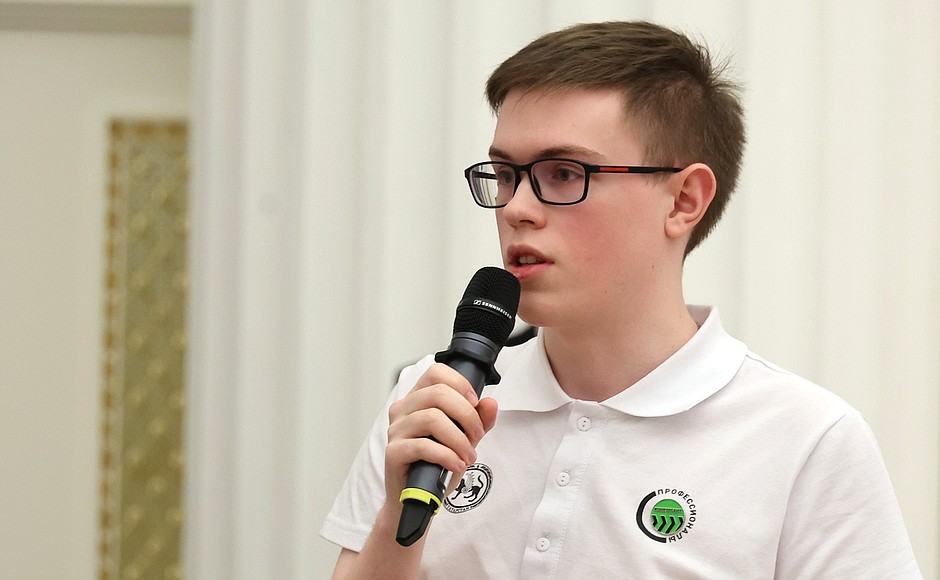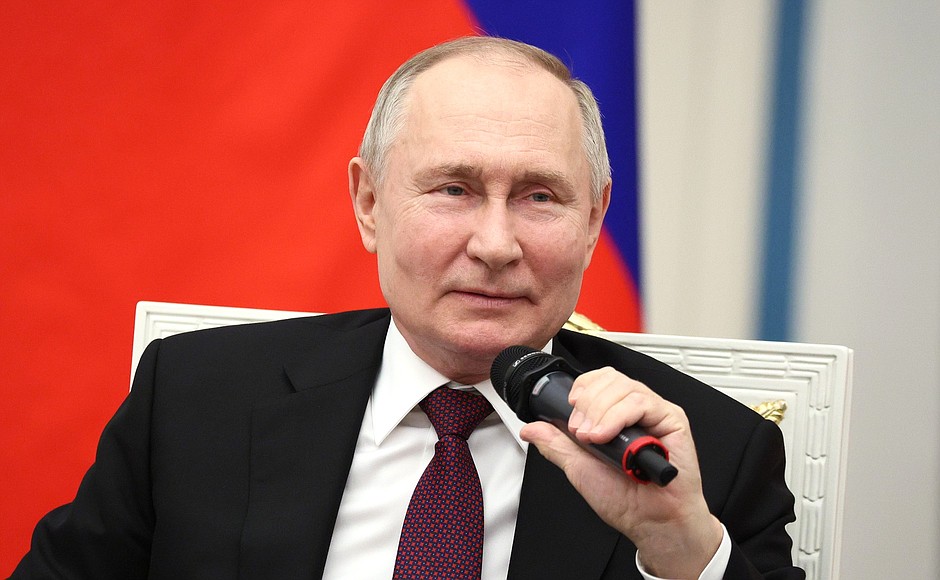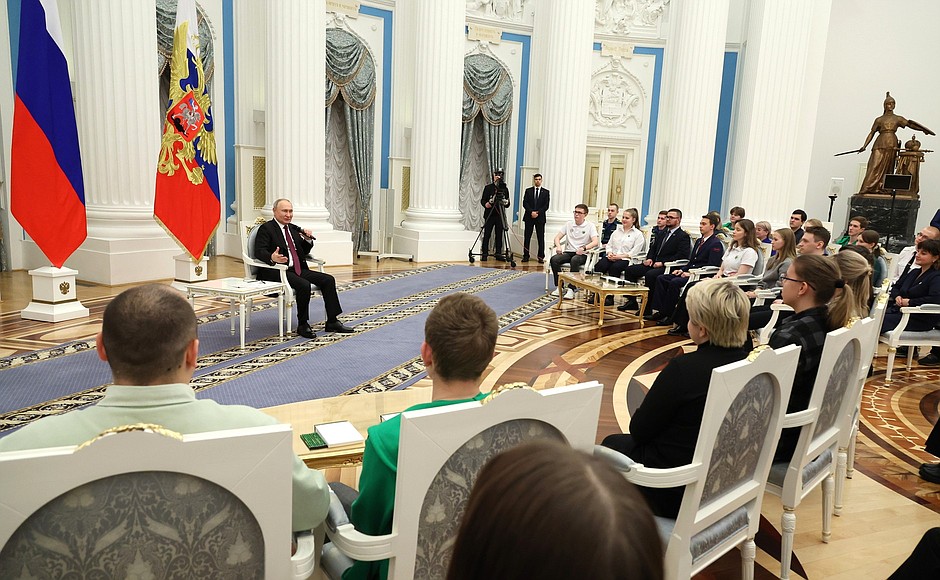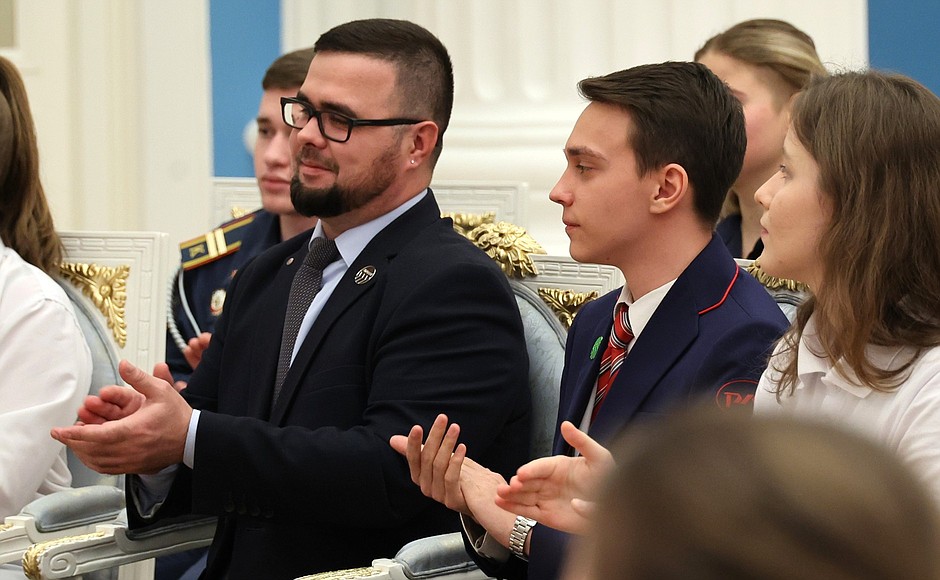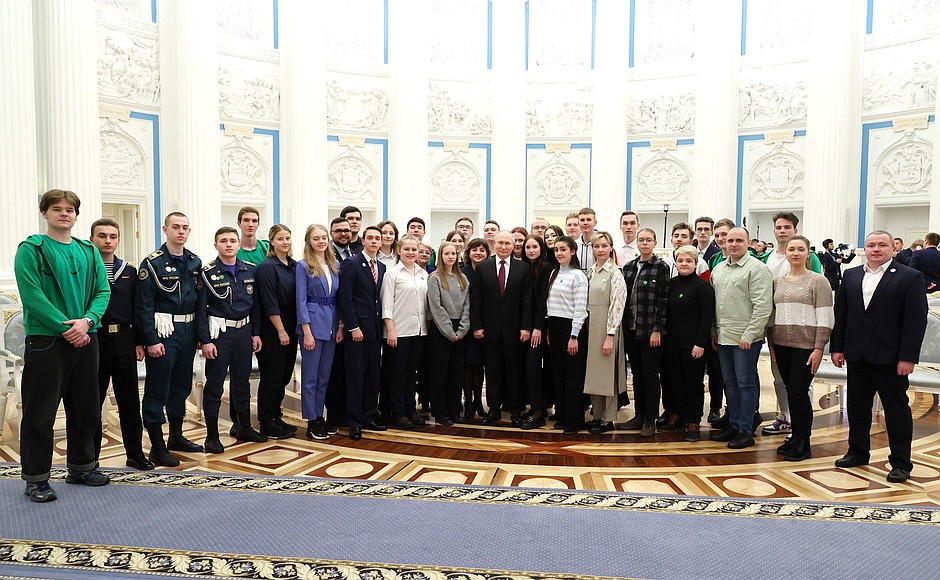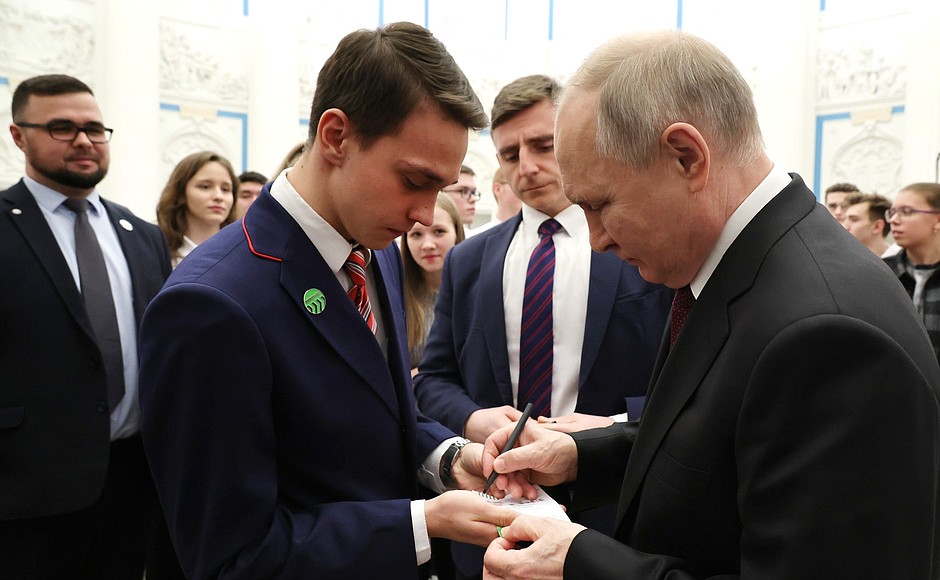The final of the championship took place in St Petersburg in late November. College students competed in 35 competences and schoolchildren aged 14 and over – in 20 competences, such as corporate protection against internal threats to information security, industrial automation, and unmanned aerial vehicle repairs, to name a few.
* * *
President of Russia Vladimir Putin: Good afternoon,
First, I would like to congratulate you and your families and friends on the coming New Year. We are unlikely to meet again before the New Year, so I would like to wish you all the best, to wish you success.
You have taken the first steps in your successful career in the best sense of the word. I would like to hope that everything continues to progress for you.
In addition – I do not know whether you have been told about this or not – if not, you will hear a piece of pleasant news; if you have, it’s okay to repeat it. Anyway – every winner and prize winner will receive a certificate for a tour of Russia under the More Than a Journey programme. So, you will be able to follow certain routes and visit Russia’s most interesting places. It might even be possible to link this travel with your future profession, but it will be interesting in any event.
What would I like to say about the competition you won and why it is so important? I am sure this has already been said many times, but I will repeat it. Do you know what people said about vocational professions in the past, in Soviet times that are pre-historical to you? “Grab more, throw farther.” This is all a worker was supposed to do, but not always, of course. There were high class professional in all times, it’s obvious.
But what is happening now? We are witnessing a technological revolution. Not here, or let’s say “not only here.” We have it, too. The whole world is being swept by a technological revolution. It requires fundamentally new, qualified personnel – call them what you want. You can call them vocational professions or anything you please. It is important that this is, of course, a completely different generation, completely different requirements and there should be a new generation of professionals.
There are many areas; you know this yourselves, and they are related to high technology. At first glance, it may seem like they have nothing to do with high-tech, but in reality they are related to it and require special knowledge. I will not list all of these areas at this point, you know them yourselves since you competed in these disciplines and won these categories.
This is why it is extremely important for us to make the process of training high class professionals tightly linked with the labour market and employers – those who are waiting for skilled professionals to come to their companies. This is true because large companies, especially in the high-tech sector, cannot develop without these professionals. Under the state’s new programmes, we are planning to train one million such professionals over the next three years.
Part of this is that demography comes in waves – we have more births, then fewer births and then more births again. This is also related to the Great Patriotic War years when we had a big gap – this is understandable. Later, in the early 1990s, it was related to the collapse of what used to be our common big homeland, the Soviet Union. The drop in births was the same as in 1943, during the Great Patriotic War. Meanwhile, in three years or so, we will see an increasing birth rate again. The number of professionals, young people entering the production process, who will reach the age of starting their careers will increase by about two million compared to now. Now we have seven million or so of them and we will have almost 10 million. And this also compels the state to create the necessary infrastructure for these people in a timely manner. The task of the state is to let them start their chosen vocations as they graduate, smoothly and naturally and to have everything prepared for this, for them to become real professionals.
I believe this will happen. At any rate, when we see how you cope with everything, we are very happy for all those who are taking part in these processes in one way or another. We are very happy for you, and I would like to sincerely wish you every success.
You are young people, but you have taken your first steps and they have proven to be successful for you. You will gain your own experience on this path. If you think we should add something or enhance our efforts in some areas, I will be glad to hear your proposals, and will certainly try to implement them with my colleagues.
<…>
